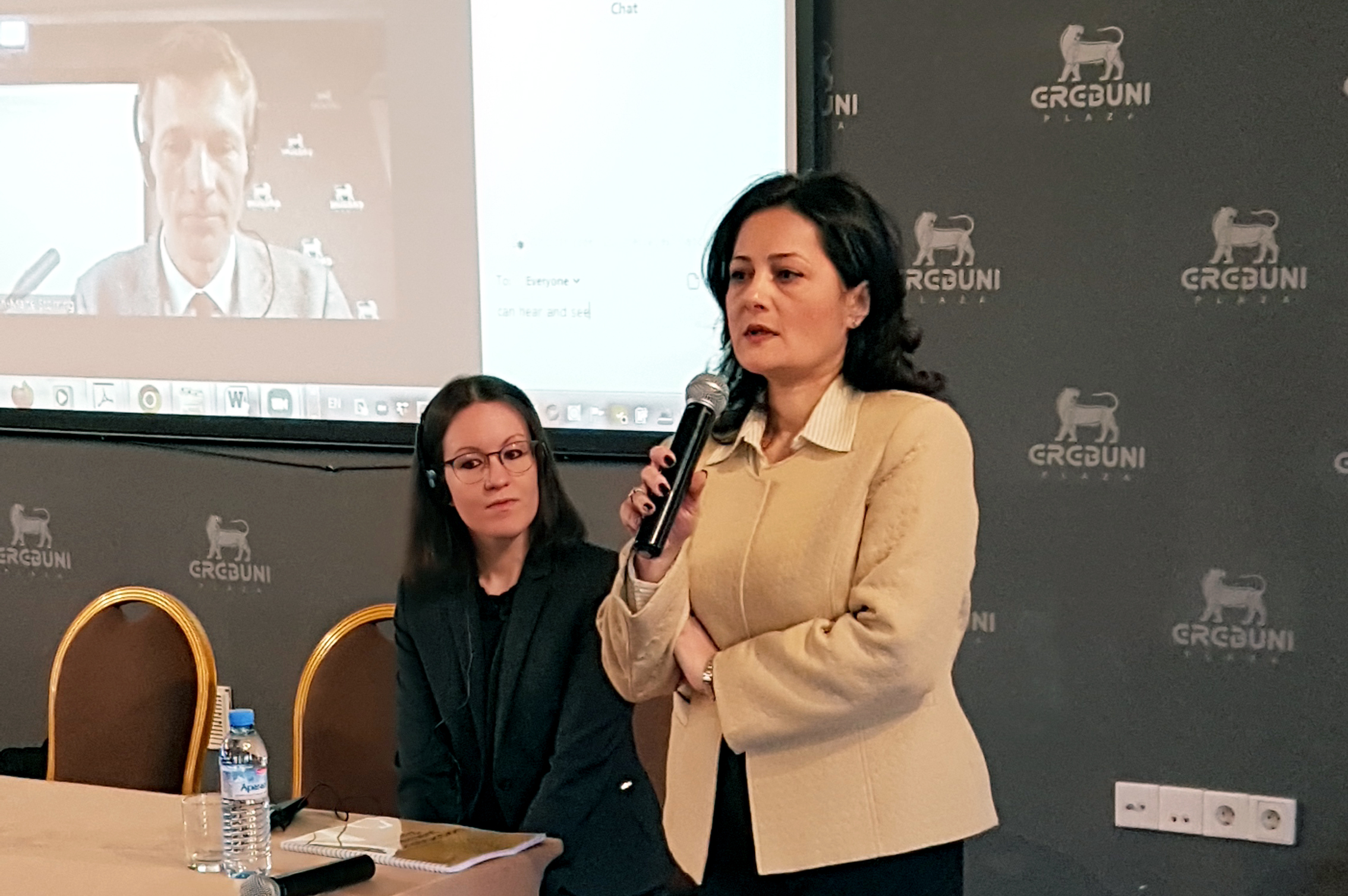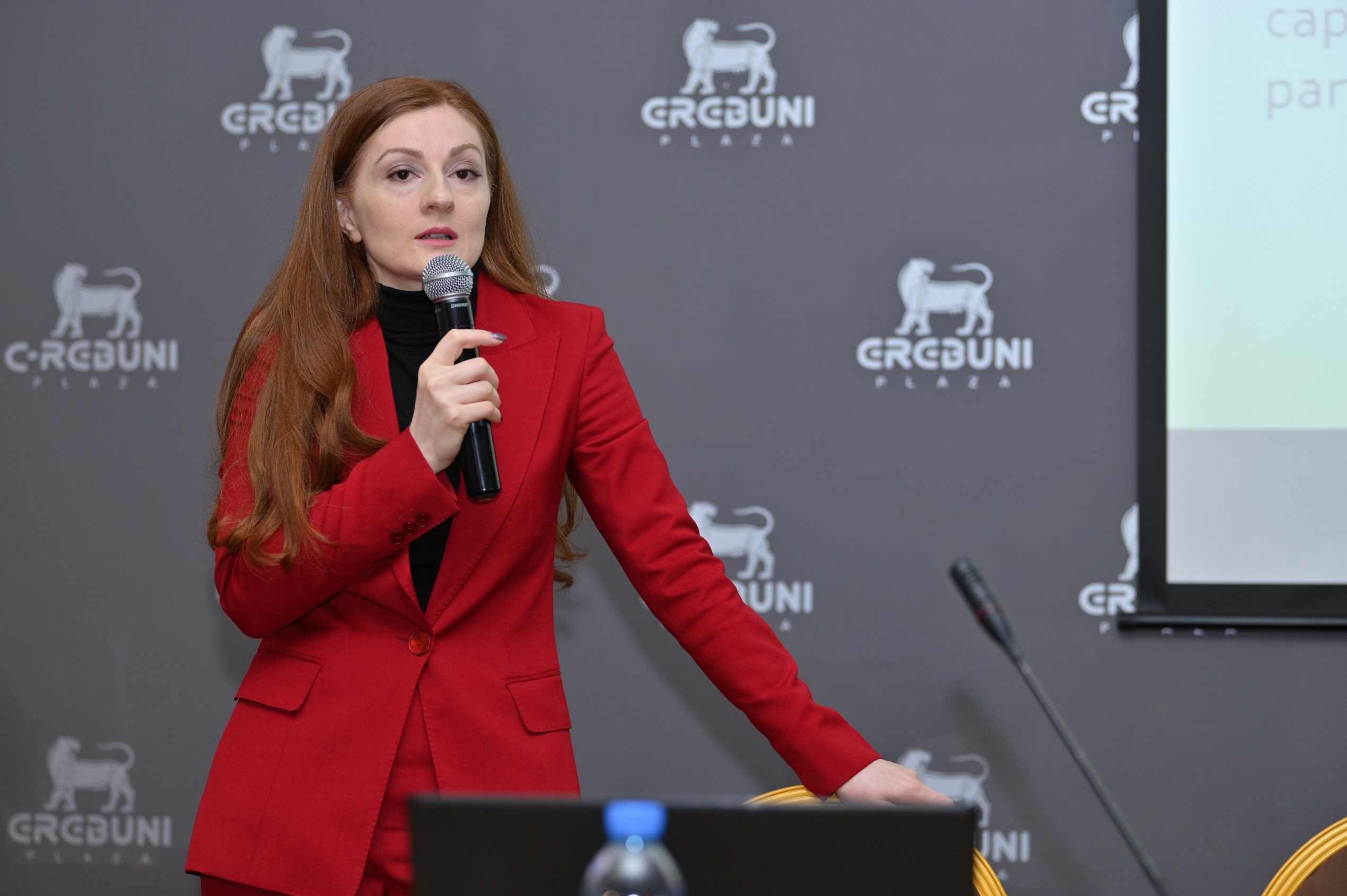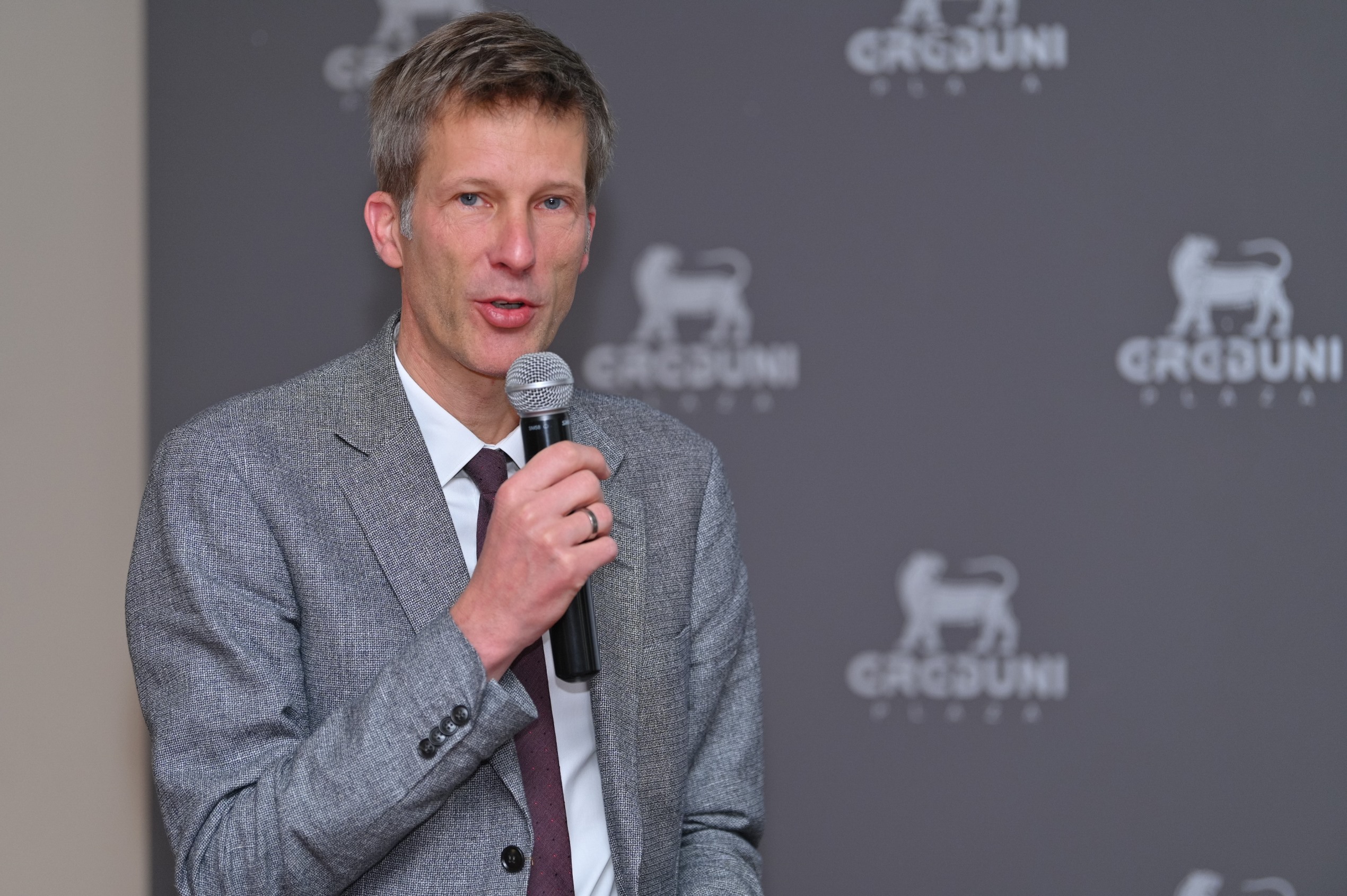Capacity Building and Training Workshop for PFIs, Investors and Developers of PV Plants
On May 11th, 2022, a capacity building workshop for the project financial institutions as well as investors and developers of up to 5 MW photovoltaic power plants was held in Yerevan in “Erebuni Plaza” Business Center, within the framework of the GAF-RE Program – “Promotion of Renewable Energies" (Phases IV and V).
The workshop hosted up to 50 participants and was aimed at raising the stakeholders’ awareness and improving their know-how on corresponding technical as well as environmental, social, health and safety (ESHS) aspects associated with the design, implementation and monitoring of up to 5 MW photovoltaic projects.
The agenda of the workshop was tailored to the participants' needs considering the feedback received from the stakeholders from an online survey organized by Fichtner in January 2022.
The session was opened with welcome addresses by Mrs. Christine Ziß, Project Manager (KfW), Mrs. Bella Andriasyan, Senior Project Coordinator (KfW Armenia) and Mrs. Gayane Khachatryan, Director of "German-Armenian Fund" PMU.


The welcome addresses were followed by a status update presentation of the GAF-RE Program delivered by Mrs. Satenik Ghevondyan, Senior Project Manager (GAF) and Mr. Sven-Malte Störring, Project Manager (Fichtner).
Mrs. Ghevondyan updated the audience on:
-
distribution of funds per each phase of the Program (Phase I: Euro 6M, Phase II: Euro 18M, Phase III: Euro 40M, Phase IV: Euro 20M and Phase V: Euro 40M),
-
scope of eligible projects (up to 500kW PV plants for own consumption, up to 5MW grid-connected PV plants and other technologies such as biomass, wind, etc.), and
-
projects refinanced under the fourth phase of the Program (5,082 small-scale solar projects with up to 500 kW capacity, 1,760 PV stations with total 38.0MW installed capacity, 3,322 solar thermal heating (STH) systems and 4 large-scale PV projects with total 20MW capacity).
It was mentioned that since June 2021, refinancing of STH projects had been excluded from the Program. The audience was also informed on the total number and installed capacity of up to 5MW commercial PV plants with developed Technical Assessments.
Mr. Störring provided details on the evaluation procedure applied by the Consultant, clarified the system of project classification based on completeness of the submitted documents and the level of assessment (e.g., “short-listed”, “evaluation-listed” etc.), and presented the “Project Register” an online platform that serves as the main database for all submitted and registered projects under consideration.
It was noted that more than 30 PV projects with a total installed capacity of 150+ MWp and about Euro 85M investments are in the Program portfolio as of May 2022.


The first Technical Session of the workshop covered the following topics:
-
“Best practice design drawing package and design basis report” delivered by Mr. Störring. The presentation summarized the key recommendations regarding designing a drawing package and development of a design basis report for a PV project outlined in the “Best Practice Guidelines on Engineering, Procurement and Construction” by SolarPower Europe. Fourty copies of the document were distributed among the participants of the workshop.
-
“Installation challenges and lessons learnt: electrical, mechanical, civil” delivered by Mr. Störring and
-
“Installation challenges and lessons learnt of small-scale and roof-top PV systems” delivered by Mr. Hrant Ter-Gabrielyan from the R2E2 Fund (Subcontractor of Fichtner). The presentations outlined the most common mechanical, civil and electrical issues observed in the design documents and during construction of PV power plants, identified the impacts of the observed problems and proposed corresponding mitigation actions.
-
“Module mounting compliant with support structure and warranty conditions” showcased examples of improper module bearing vs. the correct installation in line with module mounting manual, “Support structure foundation methods, best practice and lessons learnt” provided an overview of the current trends in Armenia for installation of support structures, quality issues observed with concrete pile foundations, various mounting structure technologies used in the market and “Structural verification of support structure foundation - field test vs. calculation” discussed the approaches of simple pull test vs. proof by calculation and its advantages and disadvantages , all presented by Mr. Störring.


During the Health and Safety session of the workshop Mrs. Christina Mansfeld, Fichtner’s International ESHS Expert delivered presentations on “Personal protective equipment” and “Required ESHS documents at site”. The importance of having first aid kits, gloves, helmets, high-visibility vests, fire extinguishers, warning signs, as well as the necessity of following COVID-19 procedures was stressed. At the same time, the list of ESHS documents that shall be available at the project site during construction and operation phases was introduced.
The second Technical Session of the workshop led my Mr. Störring was devoted to the presentation and discussion of “Efficient ways of pre-commissioning PV module string testing” (test procedure according to IEC standard, string monitoring of PV array, PV array infrared imaging via drone surveys), “Necessity of having weather stations for on-site irradiation measurement and plant performance monitoring” (minimum technical requirements), “Bankable solar resource and energy yield assessments” (EYA approach, types of solar resource data, examples of solar irradiation maps, EYA simulation approaches), “O&M and OPEX” (O&M contract key points, O&M reporting, details of OPEX) and “Plant fencing and anti-intrusion best practice” (an overview of the essential purpose).




The workshop was concluded with the Environmental Session jointly led by Mrs. Mansfeld and Mrs. Alisa Savadyan, Fichtner’s Local ESHS Expert, who covered the following topics: “ESHS housekeeping” (examples of good and poor housekeeping at sites, best practice of housekeeping), “Waste management on and off site” (proper treatment and disposal of household and hazardous waste), “PV module disposal and recycling” (material classification, storage, legal aspects) and “Environmental Offset, Botanical Studies”.
The presentations were followed by a Q&A session during which participants asked questions regarding issues associated with technical and ESHS aspects of design, construction and operation of PV plants.
Materials of the workshop can be found below.
-
Presentation of Mrs. Satenik Ghevondyan (English)
-
Presentation of the Technical Consultant (English)



